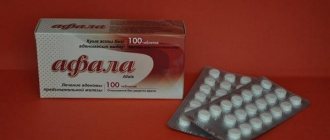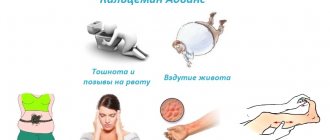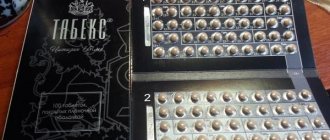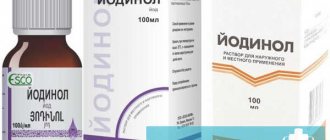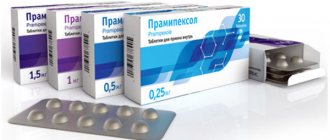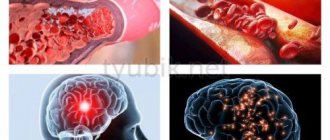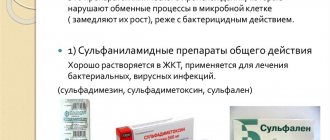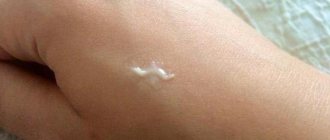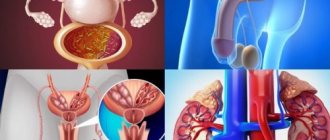Phenibut is a drug from the group of nootropics. The drug has moderate tranquilizer (anxiolytic) properties. It is generally accepted that the medicine gives confidence and helps with various nervous disorders. On the forums there are both positive and negative reviews from people who have taken Phenibut. Some believe that the medicine is highly effective and helps in everyday life. Another category of patients claims that this medication is addictive, especially when taken for a long time in large doses. Is this so and how correct are these judgments? Let’s try to figure it out in this article, and also consider how long you can take Phenibut and why the nootropic is dangerous.
Price
The cost of a nootropic drug can vary greatly, which is influenced by the manufacturer, the number of tablets in the package, and regional factors.
In Moscow price (in rubles):
- Phenibut (Belmedpreparaty, Russia), 10 tablets. – 35;
- Phenibut (Usolye-Sibirsky, Russia), 20 tablets. – 69;
- Phenibut (Ozone LLC, Russia), 20 tablets. – 87;
- Phenibut (Olainfarm, Latvia), 20 tablets. – 409.
In pharmacies, the psychostimulant is dispensed with a prescription. It is quite possible to buy medicine in an online pharmacy without a prescription; the delivery courier does not check the presence of a medical document. To be fair, it is worth noting that not all pharmacies practice such trade.
You can find out how much Phenibut costs using the system of medicines registered in the Russian Federation.
Which manufacturer is better?
A number of countries are involved in the production of Phenibut, so the question often arises of which company’s drug should be purchased and what is more effective when comparing these substances. Most often you can buy in pharmacies:
- Latvian drug;
- Belarusian drug "Belmedpreparaty";
- a number of Russian products from, “Organika”, “OHFK”;
- USA product of SNS.
You can find Phenibut from Tyumen and other manufacturers, it remains to understand which manufacturer to prefer and which country’s drug is the best. To do this, it is necessary to determine what the difference between the drugs is.
Phenibut tablets: what do they help with?
Indications for use include the following conditions and diseases:
- insomnia;
- decreased mental activity;
- anxiety disorders;
- hyperactivity;
- Meniere's syndrome;
- stuttering;
- decreased emotional activity;
- anxiety;
- menopausal disorders in women;
- decreased concentration;
- tics;
- memory disorders;
- fears, nightmares;
- asthenia;
- alcohol dependence (withdrawal);
- dizziness;
- osteochondrosis of the cervical and thoracic spine;
- urinary incontinence.
The drug "Phenibut" 0.25 g is prescribed for the treatment of alcohol withdrawal syndrome, prevention of stress before surgery and diagnostics.
Instructions for use of Phenibut and dosages
The drug is administered orally before meals for a course of 4-6 weeks.
For adults, the drug is prescribed at an average dose of 250-500 mg 3 times a day; if necessary, the dose is increased to 2.5 g per day. The maximum single dose is 750 mg, for persons over 60 years old – 500 mg.
- Children from 2 to 8 years old – 50-100 mg 3 times a day, maximum single dose – 150 mg;
- Children 8-14 years old - 250 mg 3 times a day, maximum single dose - 300 mg.
To relieve alcohol withdrawal syndrome in the first days of therapy, the drug is prescribed 250-500 mg 3 times during the day and 750 mg at night, with a gradual reduction in the daily dose to the usual dose for adults.
For otogenic labyrinthitis and Meniere's disease during an exacerbation - 750 mg 3-4 times a day for 5-7 days, with a decrease in the severity of vestibular disorders - 250-500 mg 3 times a day for 5-7 days and then 250 mg 1 time per day for 5 days. For mild diseases - 250 mg 2 times a day for 5-7 days, followed by a dose reduction to 250 mg 1 time a day for 7-10 days.
For the treatment of dizziness in disorders of the vestibular apparatus of vascular and traumatic origin - 250 mg 3 times a day for 12 days.
To prevent motion sickness - 250-500 mg once 1 hour before the intended trip (the effect is dose-dependent). Phenibut is ineffective in the development of severe motion sickness symptoms (uncontrollable vomiting, dizziness and other symptoms).
In patients with impaired liver function, high doses may cause hepatotoxicity. Patients in this group are prescribed smaller doses of the drug under monitoring of liver function.
Contraindications for use
The drug should not be prescribed to patients who have:
- in case of individual intolerance to the active substance;
- during pregnancy and breastfeeding;
- for diseases of the gastrointestinal tract in the acute stage (peptic ulcer of the stomach and duodenum, ulcerative colitis);
- in case of severe liver dysfunction;
- in a type of activity associated with increased concentration and memory;
- in children under eight years of age.
In case of hypersensitivity to the active component, the doctor may prescribe Phenibut analogues for some types of disorders.
special instructions
With long-term use, it is necessary to monitor liver function indicators and peripheral blood patterns.
Caution should be exercised in patients with erosive and ulcerative diseases of the gastrointestinal tract due to the irritating effect of the drug. These patients are prescribed lower doses of the drug
The drug contains lactose, so it should not be used in patients with congenital galactose intolerance, Lapp lactase deficiency or glucose-galactose malabsorption.
While taking the drug, you must refrain from potentially hazardous activities that require increased attention.
Side effects
Phenibut is usually well tolerated. During the first doses or in case of overdose, drowsiness may occur.
In case of overdose, gastric lavage, induction of vomiting, and symptomatic therapy are recommended (there are no specific antidotes).
Side effects
Side effects while taking phenibut are usually detected at the initial stage of therapy, but only if there are no contraindications, the body is hypersensitive to the components of the medication, and the dosage is observed. Phenibut in general is a low-toxic pharmacological drug.
Side effects appear:
- drowsiness;
- slight dizziness;
- headaches;
- periodic bouts of nausea.
Some patients also experience mood swings, increased irritability, anxiety, and allergic manifestations.
In older patients, blood pressure changes throughout the day.
In case of overdose or non-compliance with the dosage indicated in the annotation, phenibut provokes severe poisoning, intoxication, vomiting, hallucinations, renal failure, weakness, and drowsiness.
If side symptoms occur, patients are washed with gastric lavage and symptomatic therapy is prescribed to normalize the condition. The drug is stopped.
Contraindications
Regarding contraindications, Phenibut is not prescribed for hypersensitivity to the components of the drug, as well as:
- during pregnancy, lactation;
- children under 8 years old;
- in acute renal failure;
- chronic liver pathologies.
Important! As with other phenibut medications, the course of treatment must be prescribed by your doctor. The course, frequency of administration, and duration are prescribed individually.
Phenibut should be taken with caution in case of ulcerative, erosive lesions of the stomach, intestines, as well as if chronic pathologies in the gastrointestinal tract are diagnosed. For these violations, a tranquilizer is prescribed in smaller doses.
Is it addictive?
With long-term use of phenibut (more than six to seven weeks) and non-compliance with medical recommendations, phenibut can cause physical and psychological addiction. After discontinuation of the drug, a person may feel the need for medication due to the fact that the active components of the drug have affected the metabolism.
Addiction is manifested by weakness, nervous conditions, emotional deterioration, dizziness.
Accustoming to phenibut is also possible with prolonged use of it with other drugs, in combination with which the tranquilizer causes a slight feeling of euphoria.
Overdose
An overdose of the drug is accompanied by the following symptoms:
- increased drowsiness;
- decreased arterial nausea;
- pressure;
- vomiting;
- development of renal failure.
Treatment involves gastric lavage, induction of vomiting and symptomatic therapy. A specific antidote for the drug Since.
no Phenibut is a low-toxic compound; long-term use of it in doses exceeding significantly therapeutic ones (from 7 to 14 g per day) can provoke the development of hepatotoxic effects.
In particular, the patient’s physiological number of eosinophils in the peripheral blood also increases above normal, and the blood may develop steatosis (fatty liver) infiltration - a chronic disease caused by the accumulation of large amounts of triglycerides in the liver tissues and characterized by degeneration of the fat cells of the organ.
Terms of sale
Since 2014, Phenibut has been available by prescription, so you can only buy the drug in a regular pharmacy, having previously received a prescription from a practicing doctor of the appropriate profile (psychotherapist, psychiatrist, neurologist). Moreover, it should be borne in mind that the prescriptions of not all doctors seen in a private clinic are accepted at the pharmacy.
To do this, the doctor must have special accreditation, and if he does not have one, then he cannot write a prescription for Phenibut. Therefore, in order not to be disappointed and not waste time, it is more rational to immediately go for a prescription to a psychiatrist at a regular municipal clinic.
Comparison
Let's compare Phenibut produced in Latvia with other manufacturers. The drug is produced in the following countries:
- Russia;
- USA;
- Belarus;
- Poland.
Most patients and doctors from Russia note that the Russian remedy does not help, and advise making a choice in favor of the Latvian Phenibut. Russian factories do not pay such a strict attitude to quality control, GMP requirements and standards, compared to Europe. The main suppliers of raw materials for the production of Russian medicine are Asian countries, China and India. The legislation of the supplier countries does not require confirmation of the quality of raw materials.
In the USA, Phenibut is classified as a sports nutritional supplement, available in 500 mg capsules with a more powerful effect. The quality is high, the composition is distinguished by additional ingredients, it includes substances such as magnesium stearate, silicon dioxide for better digestibility and increased shelf life. Sold without a prescription.
The worst quality is for drugs produced in Belarus. The product from Poland also has not proven itself and has not gained popularity among patients.
How does the drug affect the nervous system?
Phenibut is a tranquilizer with moderate ansiolytic activity. The drug combines the properties of a nootropic and a tranquilizer.
The pharmacological drug has a psychotropic, psychostimulating, sedative, antioxidant effect, as well as an anticonvulsant effect.
The main substance of phenibut, aminophenylbutyric acid, has a direct effect on the brain, which leads to activation and normalization of metabolism and other important biochemical processes in the tissues of the organ. Increases the brain's resistance to various adverse effects of exo- and endogenous nature, extreme stress.
The active components of the drug improve the transmission of nerve impulses to the CNS (central nervous system), which pass through special molecules, the so-called GABA receptors. I have a direct effect on γ-aminobutyric acid receptors.
The drug normalizes blood circulation in the brain tissue, increasing blood flow through the blood vessels in the zone of their active microcirculation. Phenibut improves the rheological (circulating) ability of the blood.
The drug strengthens cortico-subcortical connections, that is, between the cerebral cortex and its subcortical sections.
The pharmacological agent, thanks to its rapid, almost instantaneous effect on the human body, relieves nervous tension, eliminates anxiety, and has a positive effect on the higher integrative activity of the brain.
Phenibut has a calming, psychostimulating effect, improves and has a positive effect on memory, increases concentration and performance. In addition, this medication helps cope with insomnia.
Phenibut reduces the severity of the consequences of serious severe diseases that are associated with traumatic brain injuries, strokes, spinal cord injuries, and brain intoxication.
The active components have a corrective effect on higher cortical functions impaired due to local brain lesions and support the functioning of cellular structures. While taking a tranquilizer, cortical control over the state of activity of subcortical zones is normalized.
The tranquilizer improves the body's resistance to various stress factors, reduces the threshold of excitability
Phenibut improves speech activity, attention, learning ability, clarity of consciousness
Phenibut has antidepressant properties, helps overcome depression, neuroses, neurasthenic conditions, reduces severe mental inhibition, internal tension, reduces emotional excitability, relieves fear and anxiety.
Action
Let's look at the mechanism of action of the drug Phenibut.
When Phenibut enters the body, it first affects the functioning of nerve impulses and improves the activity of nerve cells. Phenibut normalizes tissue metabolism, increases the rate of blood circulation in the brain, dilates blood vessels, from large to small, which increases oxygen saturation of cells and prevents blockage of arteries with blood clots, reduces the tone of brain vessels, and improves blood circulation. This improves the functioning of the brain, leads to stimulation of thinking, memory, and attention. Phenibut neutralizes the effects of free radicals.
The active substance enters the body, dissolves in gastric juice and enters the blood. The effects of Phenibut after administration on average begin to act and appear within an hour. Due to individual characteristics, the onset of action of Phenibut may vary - it may be slightly shorter or longer.
After 3 hours from the moment of entry into the body, the concentration of the drug in the blood becomes maximum. And it begins to weaken due to gradual elimination from the body. The effectiveness of the drug taken lasts 6-8 hours. After this time, more than 50% of Phenibut is excreted from the body. To maintain the medicinal properties, repeat taking the medicine. Phenibut is completely eliminated from the body within 9-12 hours from the moment of administration.
In the case of a single dose, the effect is not always sufficient. To improve the functioning of the nervous system and brain function, it is necessary to take a course of Phenibut.
The greatest effect is usually observed after the fifth day of treatment with Phenibut. After stopping the course of taking Phenibut, the residual effect lasts up to two weeks.
The main active ingredient of Phenibut is non-toxic, has a minimum of side effects when used correctly, and does not cause allergic or carcinogenic effects.
Instructions for use method: Phenibut administration and dosage
Instructions for use of Phenibut tablets indicate that the drug is intended for oral administration in courses, the duration of which varies from one to one and a half months.
It is recommended for adults to take tablets in a daily dose of 0.75-1.5 g. The multiplicity is 3. In cases where this is appropriate, the daily dose can be increased to 2.5 g.
The maximum permissible single dose of medication for an adult patient under 60 years of age is considered to be a dose equal to 0.75 g of phenibut. Older people are not recommended to take more than 0.5 g of phenibut at a time.
Tablets instructions: Phenibut for use and dosage for different patients
diseases suffering from dizziness due to inflammation of the inner ear, as well as people diagnosed with Phenibut Meniere's syndrome, is prescribed according to the following scheme: during periods of exacerbation of the disease, the drug is taken 0.75 g three times a day for five to seven days; when the symptoms of vestibular dysfunction decrease, the dose is reduced to 0.25-0.5 g a day three times (at this dosage the drug is taken for five to seven days); then treatment is continued for five days, taking 0.25 g of phenibut once a day.
If the disease occurs in a relatively mild form, Phenibut is recommended to be taken in a daily dose of 0.5 g for five to seven doses. days are divided into two doses. Then continue treatment for another one to three weeks, taking 0.25 g of the drug once a day.
For dizziness, treatment caused by injuries or vascular diseases is prescribed in a daily dose of 0.75 g Divide. Phenibut is recommended for three doses. The duration of the therapeutic course is usually up to two weeks.
treatment For osteochondrosis of the cervical and/or thoracic spine and relief of symptoms of menopausal syndrome in women, Phenibut is prescribed in combination with other therapeutic treatments.
During the first two weeks, the drug should be taken one tablet three times a day (the daily dose of the drug is 0.75 g). Then the number of doses is reduced to two, the dose remains the same - one tablet for each dose (the daily dose is 0.5 g of the drug).
In case of moderate severity of pain due to vertebral pathology syndrome or menopausal syndrome, Phenibut is prescribed to be taken in combination with other drugs, one tablet twice a day (0.5 g per day). Duration of the recommended course of treatment is four weeks.
its and As analogues, Phenibut is used prophylactically to prevent so-called diseases or travel, in other words, the syndrome that occurs, motion sickness during an airplane flight or sea travel.
To prevent motion sickness syndrome due to illness, Phenibut is taken once an hour approximately before the planned trip or if symptoms of kinetosis first appear. An equal dose of 0.25-0.5 g (or one or two tablets) is considered optimal. The effect of the drug is dose-dependent.
However, when severe symptoms of motion sickness (for example, severe vomiting) appear, even a dose of 0.75-1 g is ineffective.
Equal to the prevention of motion sickness during airborne illness, Phenibut is recommended to be taken according to the above-described scheme. Then take 1-2 tablets approximately an hour before the planned trip.
use according to Instructions for Phenibut for children
The drug is not intended for the treatment of children under eight years of age. Children.
Ages from eight to fourteen years, the daily dose of Phenibut is 0.75 g, that is, three days 0.25 g per tablet. It should be divided into three doses.
In cases where it is necessary, it is allowed to take the highest single dose of the drug, which is 0.3 g.
take as Phenibut if you miss a regular one If
doses? the patient has missed the next dose of the drug one or more times, the treatment course is continued in accordance with the previously prescribed dosage regimen.
Phenibut (Phenybutum) - instructions for use
Take orally after meals.
Adults are prescribed 250-500 mg 3 times a day.
The maximum single dose in adult patients is 750 mg, in patients over 60 years of age - 500 mg.
The course of treatment is 2-3 weeks. If necessary, the course can be extended to 4-6 weeks. The duration of the course of treatment is determined by the doctor, taking into account the characteristics of the disease, tolerability of the drug and the achieved effect.
Children aged 8 to 14 years - 250 mg 3 times a day. Children over 14 years of age are prescribed adult doses.
To relieve alcohol withdrawal syndrome in the first days of treatment - 250-500 mg 3 times during the day and 750 mg at night, with a gradual reduction in the daily dose to the usual dose for adults.
For illness and Meniere's syndrome during an exacerbation - 750 mg 3 times a day for 5-7 days, with a decrease in the severity of vestibular disorders - 250-500 mg 3 times a day for 5-7 days and then 250 mg 1 time per day for 5 days. For mild diseases - 250 mg 2 times a day for 5-7 days, followed by a dose reduction to 250 mg 1 time a day for 7-10 days.
For the treatment of dizziness due to dysfunction of the vestibular analyzer of vascular and traumatic origin - 250 mg 3 times a day for 12 days.
To prevent motion sickness - 250-500 mg once 1 hour before the intended trip (the effect is dose-dependent). The drug is ineffective in the development of severe motion sickness (“uncontrollable” vomiting, dizziness and other symptoms).
In patients with impaired liver function, high doses of the drug may cause a hepatotoxic effect. Patients in this group are prescribed smaller doses of the drug under monitoring of liver function.
The nootropic is intended for oral use. When treating, strictly adhere to the dosage. Tablets and capsules are taken after meals. The medicine should be washed down with plenty of water without biting or chewing.
Do not take Phenibut before meals. The medicine may cause irritation of the gastrointestinal mucosa.
Can children be treated with Phenibut?
Children are allowed to take the nootropic from the age of 8, so there are no problems with taking the pills. It is better to drink the product after meals for less impact on the gastrointestinal mucosa. The maximum dose is 750 mg. In some cases, the doctor prescribes the drug for up to 8 years, then the daily dose cannot exceed 300 mg.
During pregnancy and lactation
During breastfeeding and pregnancy, take this drug with great caution. They cannot treat themselves
Expectant mothers can take the sedative Phenibut only under strict medical instructions. In general, the use of medication in the first trimester of pregnancy is prohibited.
Pharmacological properties
Phenibut tablets, which is why they are considered a nootropic drug, are gamma-amino-beta-phenybutyric acid hydrochloride. The medicine has antioxidant, tranquilizing and antiplatelet effects. The medication improves blood circulation and the functional state of the brain, and normalizes tissue metabolism.
Phenibut tablets 0.25, which help get rid of anxiety, fear and anxiety, create a psychostimulating effect. They improve sleep and relieve cramps
The medication has a positive effect on attention, memory, increases the speed and accuracy of motor skills
The medicine improves intellectual and physical performance, relieves symptoms of asthenia, headache, irritability. The product is very helpful for patients with motor and speech disorders. In asthenic patients, motivation for activity appears from the first days of using the medication.
For what?
Phenibut is not prohibited. This is a medicine with a broad complex effect, it:
- helps reduce the level of internal tension;
- relaxes, increases motivation, improves mood, increases creativity;
- normalizes oxygen exchange and blood circulation in the vessels of the brain;
- increases the speed of passage of nerve impulses;
- Phenibut enhances the ability to conduct physical and mental activity, endurance;
- relieves headaches, dizziness, sleep disorders;
- normalizes muscle tone;
- speeds up metabolism.
Phenibut is prescribed as a sedative and anti-anxiety agent:
- for insomnia at night to improve sleep;
- with nightmares;
- with asthenia (apathy, lethargy, feeling of exhaustion and powerlessness);
- with vegetative-vascular dystonia (VSD);
- various neuroses and depression;
- for children to combat hyperactivity;
- for stuttering, tics, speech disorders, enuresis in children.
Some patients write that they use Phenibut for weight loss. This effect is explained by the fact that the product increases the level of growth hormone, speeds up metabolism and removes toxins from the body.
Phenibut is used to improve the well-being of athletes; it is prescribed in bodybuilding and sports as a restorative agent for:
- reducing fatigue and tension;
- muscle recovery after training, relaxation and normalization of muscle tone;
- increased muscle activity;
- removing toxins from the body;
- stimulation and support of the production of hormones that affect the building of muscle mass;
- Phenibut helps normalize sleep and rest of the body;
- treatment of psychological disorders associated with stress in the body due to physical activity, to get rid of anxiety, normalize sleep;
- recovery from physical and psychological exhaustion of the body;
- increasing endurance.
Noofen and Phenibut: what is the difference?
The basis of both compositions is aminophenylbutyric acid. Both drugs have the same properties and indications.
It is quite difficult to determine which is better, but when choosing a medicine for a child, you should be guided by the fact that Noofen has been used since the age of three.
Reviews from adults and parents whose children were prescribed Phenibut on various online forums indicate the effectiveness of the drug and the absence of side effects.
The effectiveness of treatment with a nootropic drug is also confirmed by Dr. Komarovsky. In his opinion, the course of therapy should be completed by reducing the dose of the psychostimulant and simultaneously taking sedative medications. This will help curb the negative effects of phenylethylamine, which remains unchecked after the tranquilizer is discontinued.
Instructions for use
Before you start taking a psychostimulant, you should carefully read the instructions to clarify questions about how to take it correctly and what the drug helps with.
It is also important to ask your doctor what side effects are possible from exposure to the active substance, and what effect to expect after use. The regimen for using the drug is not tied to food intake
The dosage rate is determined by the doctor taking into account the etiology of the disease, symptoms and condition of the patient.
The regimen for using the drug is not tied to food intake. The dosage rate is determined by the doctor taking into account the etiology of the disease, symptoms and condition of the patient.
Single dose of medication:
- for adults – 20-750 mg;
- for children – 20-250 mg.
The drug is taken 2-3 times a day.
- For symptoms of asthenia: a quarter of a tablet per day (sometimes the dose is increased to 250 mg), the course of treatment is up to 1.5 months.
- For sleep disturbances and nightmares in elderly people: half a tablet 2-3 times a day, course of treatment – up to 3 months.
- In the treatment of Meniere's disease, with exacerbation of anxiety, otogenic labyrinthitis: the daily dose of 750 mg is divided into 2-3 doses, with mild symptoms the dose is reduced to 500 mg. The treatment regimen is often adjusted with an increase or decrease in the amount of the active substance at different stages of therapy.
- To eliminate symptoms characteristic of dysfunctions of the vestibular analyzer associated with vascular pathology or the consequences of injury: 250 mg three times a day, course of treatment – 12 days.
Reviews
Feedback from parents after using Phenibut is mostly positive. Some note that after treatment the child became less irritable, hyperactivity and excitability disappeared. Others note that Phenibut normalized sleep in children and eliminated nightmares. Let's look at some reviews from parents below.
Veronica August 21, 2021
“My son is 6 years old. From birth he was a difficult child, restless. It was simply impossible to get him to sit down! No matter what doctors we went to, they all prescribed us only glycine and herbal decoctions. Things got more complicated when my son went to school. I thought that in the company of other children he would become calmer and more reserved, but I was wrong. Conflicts with classmates began on the second day of school. Then I took my son to a neurologist. We were prescribed Phenibut.
At first I was scared, because this is a powerful drug! But the doctor reassured me and explained that it is absolutely harmless to the child. At first it was difficult, side effects made themselves felt: nausea, dizziness, headache. However, after just a week of taking it, I noticed results! The child became calmer, conflicts at school and within the family disappeared. According to my son, his nightmares even disappeared after Phenibut.”
Anna November 16, 2021
“I have two children - 7 months and 10 years old. A month after the birth of the youngest, the eldest daughter began to complain of lack of sleep and nightmares. At first, I thought that the baby was not letting her sleep, waking her up at night. But even when the youngest slept peacefully, the daughter complained of being unwell. After this, constant fatigue was added, which developed into chronic fatigue. Afterwards she began to complain of feelings of anxiety and restlessness.
I took my daughter to the pediatrician, from where we were redirected to a neurologist. After listening to us, the doctor gave a prescription for Phenibut. After completing the course in two weeks, my daughter seemed to have been replaced! The fatigue disappeared, the child began to sleep at night again! Now we know what to do if the same problem happens to the youngest.”
Natalya April 4, 2021
“My son is 15 years old. Not long ago he began to complain to me about depression, a persistent feeling of anxiety and fear. At first I didn’t pay attention, I thought the teenage thing would pass. I even gave him valerian at first. But the result was only temporary. The child walked gloomy and depressed all the time, and then began to complain of nightmares. A month later I took him to a neurologist.
The diagnosis is sleep disturbance and obsessive-compulsive disorder, complicated by panic attacks. Phenibut was prescribed. At first, the son resisted, did not want to take the pills, and said that he was not crazy. Teenagers, what to take from them. But after 10 days of the course, when the first side effects passed, the child felt noticeable improvements. I started sleeping more and can’t get up at night. Teenage irritability has disappeared. The child became calmer and more reserved. A couple of days ago he said that panic attacks and depression had passed. This is simply wonderful news!”
Olga July 11, 2021
“The four-year-old daughter suffered from enuresis. My daughter was already very worried about this, and they started teasing her in kindergarten. I persuaded my daughter to go to the doctor. Phenibut therapy was prescribed. At first, it was scary to give such a potent drug to a child, I was afraid of making a mistake in the dosage. After three weeks of treatment, we forgot that we ever had such a problem! The daughter lives an ordinary life, does not have complexes for any reason, and is no longer teased in kindergarten. Thanks to the neurologist.”
Medicine "Phenibut": instructions for use
The tablets are taken in courses lasting 1-1.5 months. The daily volume of the drug for adult patients is 0.75-1.5 g. It is taken 3 times. If necessary, the dosage is increased to 2.5 g. A single dose of the drug for patients under 60 years of age should not exceed 0.75 g. Elderly persons are prescribed up to 0.5 g per dose.
Instructions for the use of Phenibut tablets for various diseases
For inflammation of the inner ear and Meniere's syndrome, the medicine is taken for 5-7 days, 0.75 g three times a day. If the condition improves, the dosage is reduced to 0.25-0.5 g. Take another 5-7 days. Then they switch to 0.25 g. The tablets are taken for another 5 days, 1 time per day.
For mild cases of the disease, the medication is prescribed in a volume of 0.5 g per day (2 times), taken for a week. Afterwards they switch to 0.25 g of the drug “Phenibut”. Treatment is continued for 7-21 days.
For dizziness caused by vascular disease or injury, tablets are taken at a dose of 0.25 g three times a day. The course of therapy takes up to 14 days.
To treat osteochondrosis and menopausal symptoms, the drug is taken in combination with other medications. For the first 14 days, take 1 tablet 3 times a day, after which they switch to a twice daily dose.
To prevent motion sickness, Phenibut tablets should be taken an hour before travel or when the first signs of motion sickness occur. The dosage is 1-2 tablets. With severe vomiting as a result of motion sickness, even a high dose of the drug may be useless.
Introduction
Phenibut is a remedy that will simultaneously calm the nerves and help cope with intellectual stress at the same time. The medicine is produced by different pharmaceutical companies. Manufacturers produce the drug from the same substances using the same technology. But there are still differences. And this is a huge difference in quality. Experts and patients prefer Latvian Phenibut. Why? Let's consider a medicine produced in Latvia.
The only pharmaceutical company producing Phenibut in the Baltic countries - Latvia, Lithuania, Estonia - is Olainfarm. In European countries, increased demands are placed on pharmaceutical products. During all stages of drug release, strict control is carried out. The quality of purchased raw materials for the production of medicines and the process itself are checked. The finished product fully complies with international requirements and state standards.
What is Phenibut used for?
According to the instructions, Phenibut helps with:
- urinary retention due to myelodysplasia;
- stuttering and tics in children, enuresis;
- Meniere's disease associated with dysfunction of the vestibular analyzer;
- dizziness;
- nightmares and insomnia in older people;
- primary open-angle glaucoma;
- anxious-neurotic and asthenic states, obsessive-compulsive neurosis, fear, anxiety, psychopathy.
and also shown:
- for kinetosis to prevent motion sickness;
- as an auxiliary therapy in the treatment of alcoholism;
- for the treatment of delirious and predelirious states in alcoholism;
- as a preventive treatment for anxiety before painful diagnostic procedures and operations.
What is it prescribed for?
Phenibut for children is used to treat children aged 2 years, 3 years or 5 years in the following cases:
- neurotic conditions;
- DSVG;
- stuttering;
- logoneurosis;
- panic attacks;
- convulsions;
- ZRR;
- feeling of anxiety;
- sleep disorders;
- hyperactivity;
- psychopathy;
- enuresis (urinary incontinence) and urinary retention;
- increased fatigue, as well as chronic fatigue syndrome;
- obsessive states;
- motion sickness on the road;
- nervous tics;
- autism.
Opinions of patients and doctors
Reviews of Phenibut tablets are mixed. Some patients praise the medicine for its effectiveness, others overly criticize it for side effects: drowsiness and inhibition of mental reactions. Why do Phenibut tablets help some patients and harm others?
Many point to the strong tranquilizing effect of the drug and its weak nootropic properties. They believe that the medicine can only be taken if there are significant mental disorders. Doctors say that the properties of the medicine directly depend on the dose taken. This determines whether the drug will act as a nootropic or a tranquilizer. Self-medication should not be allowed; only a specialist can prescribe the required dose.
Patients are also interested in: “Is Phenibut addictive?” Experts say that the drug is indeed addictive. However, addiction develops with prolonged use of the drug. At the same time, coping with withdrawal syndrome is not difficult. To do this, in the last 7 days of treatment it is necessary to gradually reduce the daily dosage.
There is an opinion that the drug Phenibut is dangerous for the liver. However, doctors refute these speculations, arguing that the effect on this organ is minimal, since less than 5% of the active substance is excreted through the liver. Negative effects are only possible with long-term use of the drug in dosages three or more times higher than the permissible limit.
Parents also give positive reviews about the drug Phenibut. They note that tics went away almost completely in younger children, but in older children there was no significant improvement.
conclusions
Phenibut is an effective drug that combines sedative and nootropic effects with a wide range of indications for use. This is its advantage; it reduces neurotic disorders, but at the same time increases brain function and performance.
Many doctors prescribe Phenibut due to its effectiveness and speed of action, low toxicity, safety, and a small range of contraindications and side effects. Phenibut is used by athletes to improve their condition, and is used by astronauts. The drug is used to treat not only adults, but also children. It is important to follow the instructions for use to avoid unwanted effects.
In the modern world, people are constantly surrounded by stress in their daily lives. Many experience daily frustrations over trifles, nervous breakdowns, difficult life circumstances, family tragedies, and the development of anxiety. In order to cope with such conditions and at the same time remain capable of high intellectual activity and physical labor, it is recommended to take Phenibut.
